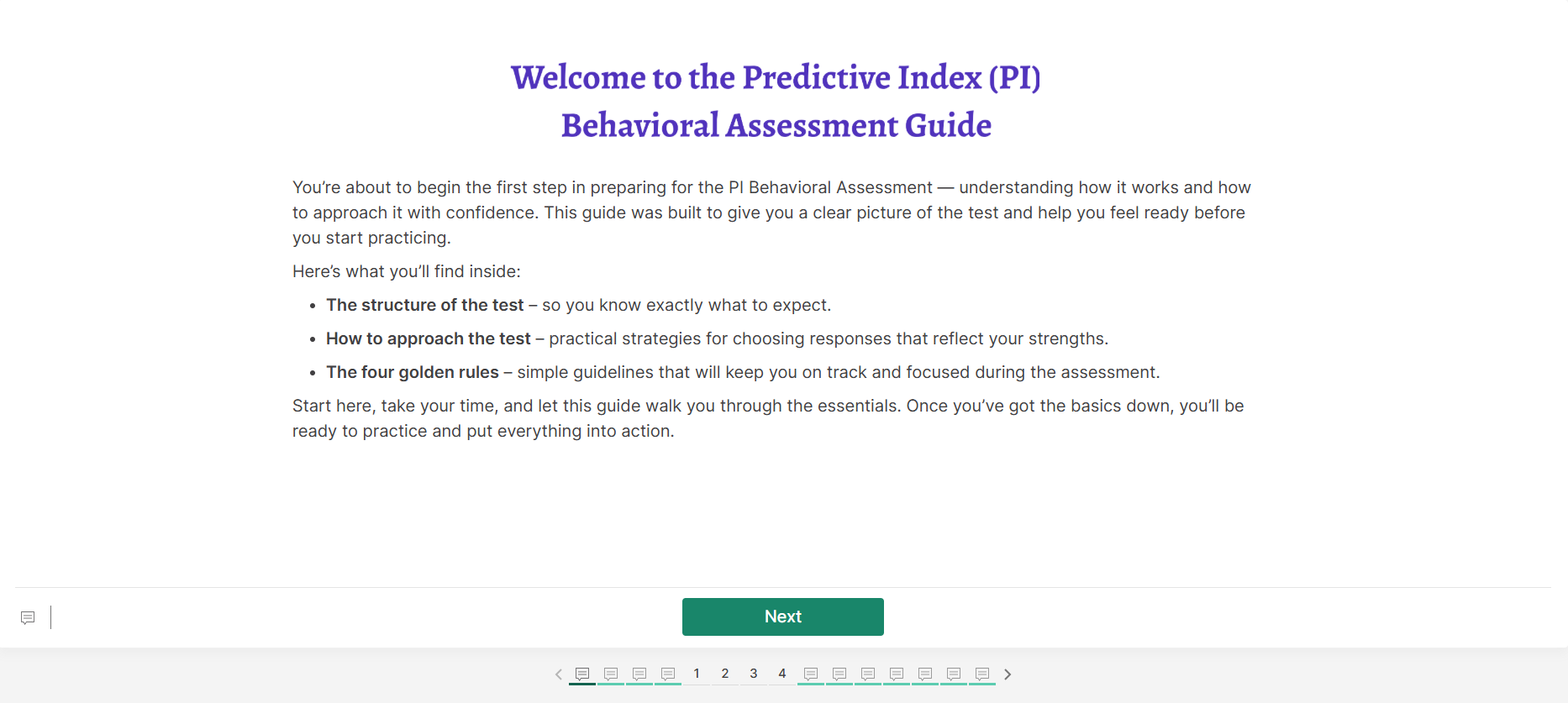Master the PI Behavioral Assessment with confidence
Get full preparation for the Predictive Index Behavioral Assessment, a short yet challenging personality test used by top employers worldwide. Familiarize yourself with its unique structure and subtle pitfalls using expert-designed practice tests and guidance, ensuring you approach the real assessment ready and self-assured.
The PI Behavioral Assessment PrepPack includes:
- Follow a 3-step expert-guided journey - make the most of your preparation and master every part of the PI Behavioural Assessment.
- Get complete coverage of the four PI factors - including a clear breakdown of the adjectives that reflect each one.
- Learn to match your personality profile to the job description with hands-on examples and guided practice for accurately rating each factor.
- Practice creating a four-factor hierarchy, and learn how to choose the correct number and type of adjectives (personality traits).
-
Unlimited retakes during your subscription – build speed, accuracy, and confidence.
- Detailed Study Guides:
Job description analysis, M-factor, adjective selection - Practice Tests:
Classifying & choosing adjectives, extracting trait factors from job descriptions.
Who Are We?
At JobTestPrep, we’ve helped thousands of candidates pass competitive hiring assessments,
including those at McKinsey and other top consulting firms. Our materials are designed by
psychometric experts and updated based on real candidate feedback to reflect the latest game formats.
Founded in 1992 by David Meshulam, JobTestPrep has become a trusted leader in online test preparation. With 30+ years of experience, 220+ courses, and over a million success stories, we combine expert-crafted PrepPacks with AI tools like our CV Analyzer and Interview Prep platform to help candidates worldwide prepare with confidence.
FAQ's
You will have instant access to your PrepPack, which includes all your practice tests. You can start practicing immediately, learning from detailed explanations and guides, while tracking your performance with accurate, tailored questions to help you understand the correct approach to solving your assessment.
After your purchase, you will receive two emails. The first will contain your payment receipt, and the second will include a login link along with information about our general terms, conditions, and refund policy. To access your PrepPack, simply log in and reset your password.
No, there is no limit. Your progress is saved in your account, allowing you to revisit previous attempts. Our performance tracker helps you focus on the test sections that require more attention.
Yes, you can extend your practice period. Simply contact our customer success team via c.serv@jobtestprep.com.






